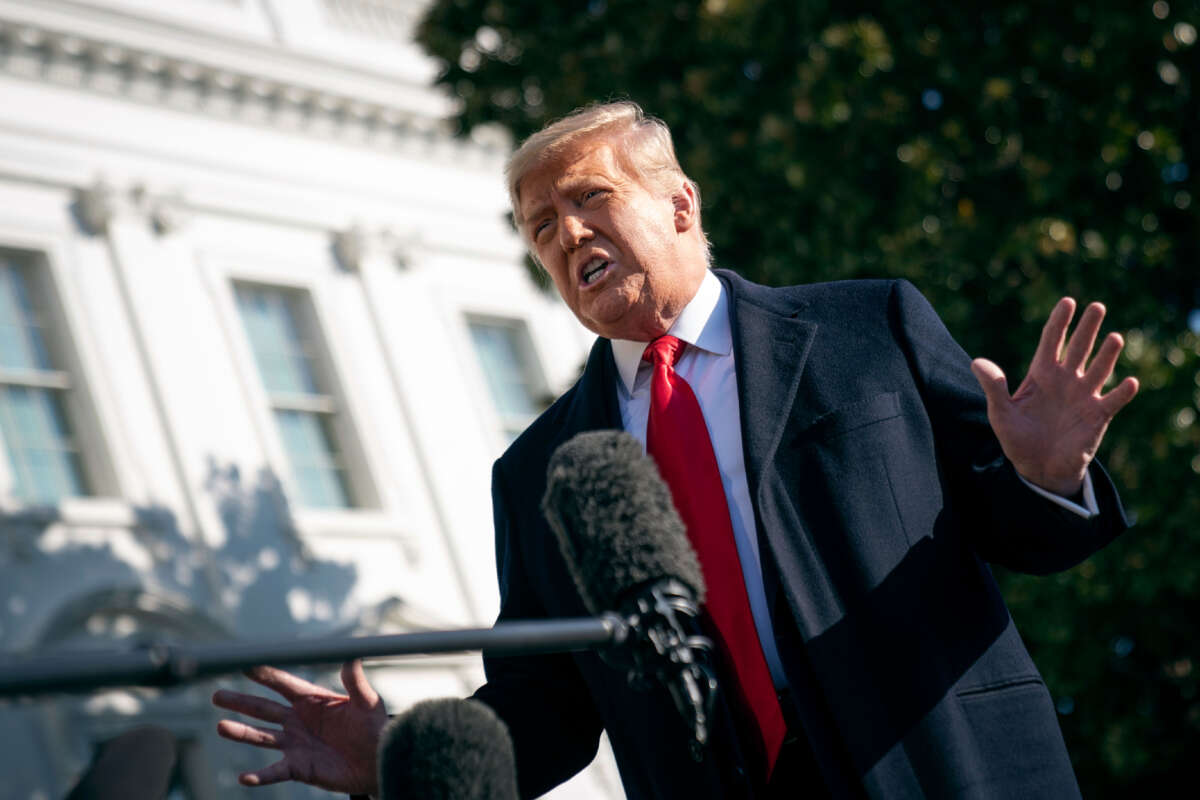Did you know that Truthout is a nonprofit and independently funded by readers like you? If you value what we do, please support our work with a donation.
Prosecutors in special counsel Jack Smith’s inquiry into former President Donald Trump’s attempt to overturn the 2020 presidential election have discovered a previously unknown memo, written by one of Trump’s co-conspirators, admitting that the fake electors plot may not be successful or seen as legal.
Although the memo was discussed briefly in Smith’s indictment of Trump, which was made public last week, details about the memo’s contents were not included in the indictment papers. The New York Times obtained a copy of the memo and published it on its website on Tuesday.
The memo, which was authored by then-Trump lawyer Kenneth Chesebro (who had been hired to challenge election results in Wisconsin), details the exact steps needed for the plot to be successful — or, at the very least, for it to delay the certification of Joe Biden as the legitimate winner of the 2020 election long enough for other challenges to continue.
Chesebro noted that it was “important” that fake electors cast their ballots at the same designated areas where legitimate electors were meeting on December 14, but added that there “is no requirement that they meet in public,” and that it might be preferable to cast fake ballots in private “to thwart the ability of protesters to disrupt the event.”
He also called the plan a “bold, controversial strategy” that would “likely” be rejected by the Supreme Court once it was challenged.
The scheme required Trump’s vice president, Mike Pence, to assert himself as the only responsible party in Congress with the legal authority to count electors’ votes by claiming that the Electoral Count Act was unconstitutional. After doing so, Pence could count the fake electors’ votes as valid. (Pence ultimately decided to opt out of the plan, to Trump’s great, and very public, dismay.)
Chesebro, who is listed as Co-Conspirator #5 in the latest federal indictment against Trump, went on to explain:
I believe that what can be achieved on Jan. 6 is not simply to keep Biden below 270 electoral votes. It seems feasible that the vote count can be conducted so that at no point will Trump be behind in the electoral vote count unless and until Biden can obtain a favorable decision from the Supreme Court upholding the Electoral Count Act as constitutional, or otherwise recognizing the power of Congress (and not the president of the Senate) to count the votes.
Notably, Chesebro cited the writings and opinions of Harvard Law professor Laurence Tribe, for whom Chesebro had served as a research assistant. Chesebro had claimed in the memo that Tribe had previously shown that the Electoral Count Act was unconstitutional.
On Tuesday, Tribe rejected those claims from Chesebro, writing in an op-ed for Just Security that they were a “gross misrepresentation of my scholarship.”
Chesebro “quotes me completely out of context,” Tribe wrote. “I was discussing the specifics of Florida state law [during the 2000 presidential election] — not what federal law (or, for that matter, any other state’s law) requires or permits.”
“I can say with confidence that the proposition that Chesebro misattributes to me is one I have never embraced,” he added. “Among other things, it completely disregards the role of the Electoral Count Act – and, even more fundamentally, of Article II of the Constitution in empowering Congress to set the ‘Time of chusing the Electors, and the Day on which they shall give their Votes, which Day shall be the same throughout the United States.'”
Other legal minds similarly condemned Chesebro’s plan.
“A stain on the legal profession and a dark chapter in our history,” former federal prosecutor Renato Mariotti tweeted.
Press freedom is under attack
As Trump cracks down on political speech, independent media is increasingly necessary.
Truthout produces reporting you won’t see in the mainstream: journalism from the frontlines of global conflict, interviews with grassroots movement leaders, high-quality legal analysis and more.
Our work is possible thanks to reader support. Help Truthout catalyze change and social justice — make a tax-deductible monthly or one-time donation today.
